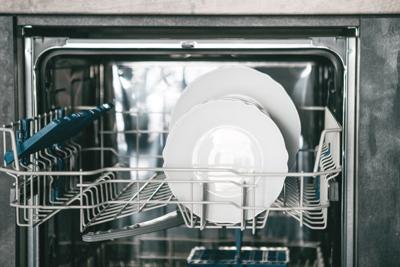
There is nothing worse than trying to relax after a long day only to hear your dishwasher rattling, humming, or squealing through the quiet of the night. While dishwashers are designed to make life easier, strange or loud sounds can quickly turn them into a source of frustration. Understanding what those noises mean and how to deal with them is the first step toward restoring peace in your kitchen. In some cases, you can fix the problem yourself. In others, professional dishwasher repair may be the best solution.
Why Dishwashers Make Noise
Dishwashers are complex appliances with multiple moving parts: pumps, motors, spray arms, valves, and more. When one of these parts becomes loose, worn, or blocked, noise is usually the first sign. Not all sounds indicate a major fault, but ignoring them can lead to bigger problems down the track.
Common types of noises include:
Banging or rattling: Usually caused by loose items inside the machine or spray arms hitting dishes.
Grinding: Often points to food debris caught in the chopper blade or pump.
Humming or buzzing: Can be a normal motor sound, but persistent humming may indicate a failing motor.
Squealing or squeaking: Often related to a worn bearing or pump seal.
Quick Fixes You Can Try
Before calling a technician, there are a few simple checks that might resolve the issue.
1. Rearrange the Dishes
One of the most common reasons for loud banging is poor loading. If large pots or pans block the spray arms, they will hit against them during the wash cycle. Make sure dishes are stacked securely and not touching moving parts.
2. Check for Loose Cutlery
Spoons, forks, or knives that slip through the rack can get stuck and rattle against the spray arms. Always place cutlery in the basket with handles down to avoid this.
3. Clean the Filter and Drain
Food scraps left in the filter or drain can cause grinding sounds. Remove the filter, rinse it thoroughly, and clear away any debris. This not only reduces noise but also improves wash performance.
4. Inspect the Spray Arms
Remove the spray arms and check for blockages in the nozzles. Clogged arms can create uneven pressure that leads to unusual noises. A toothpick or soft brush can be used to clear them.
5. Tighten Mounting and Panels
Sometimes the noise is not inside the dishwasher at all. Vibrations from loose panels or poor installation can amplify sounds. Tighten any visible screws and check that the unit is level.
When It’s a Bigger Problem
If the noise continues after trying these simple fixes, there may be an underlying mechanical fault. Some of the most common issues include:
Worn pump bearings: This causes squealing or grinding and usually requires a pump replacement.
Failing motor: A motor on its way out may hum loudly or struggle to power the wash cycle.
Faulty inlet valve: Buzzing or rattling during the fill cycle can be a sign of a valve problem.
Damaged chopper blade: A broken blade can create harsh grinding sounds and reduce cleaning efficiency.
These are not problems most homeowners can fix safely. Attempting a repair without the right tools or experience can cause more damage or even create a safety hazard.
Why Call a Professional
Dishwashers combine water and electricity, which makes them potentially dangerous for DIY repairs. A professional dishwasher repair service can quickly diagnose the issue, replace the faulty part, and test the unit to ensure it is safe to use. While it may be tempting to ignore the noise, small issues often become bigger ones if left untreated. For example, a worn pump bearing left too long could cause the motor to fail completely, leading to a more expensive repair.
A technician will also check other areas of the appliance, such as wiring, seals, and drainage, which means you benefit from a full inspection as well as the repair.
How to Prevent Noisy Dishwashers in the Future
Once your dishwasher is back to running quietly, a few habits can help keep it that way:
Rinse large food scraps off dishes before loading. This prevents clogs and reduces strain on the pump.
Load dishes correctly. Follow the manufacturer’s guidelines for spacing and positioning items.
Clean the filter regularly. A clean filter means less debris rattling around inside.
Check spray arms every few weeks. Make sure they spin freely and are free of blockages.
Schedule regular maintenance. Just like cars, appliances benefit from professional check-ups.
A noisy dishwasher can make evenings at home far less enjoyable, especially when the rest of the house is quiet. The good news is that many sounds are caused by simple issues such as poor loading or blocked filters. If you try the quick fixes above and the problem continues, it is best to book a professional dishwasher repair service. Not only will this restore peace and quiet, but it can also extend the life of your appliance and save money in the long run.



(0) comments
We welcome your comments
Log In
Post a comment as Guest
Keep it Clean. Please avoid obscene, vulgar, lewd, racist or sexually-oriented language.
PLEASE TURN OFF YOUR CAPS LOCK.
Don't Threaten. Threats of harming another person will not be tolerated.
Be Truthful. Don't knowingly lie about anyone or anything.
Be Nice. No racism, sexism or any sort of -ism that is degrading to another person.
Be Proactive. Use the 'Report' link on each comment to let us know of abusive posts.
Share with Us. We'd love to hear eyewitness accounts, the history behind an article.